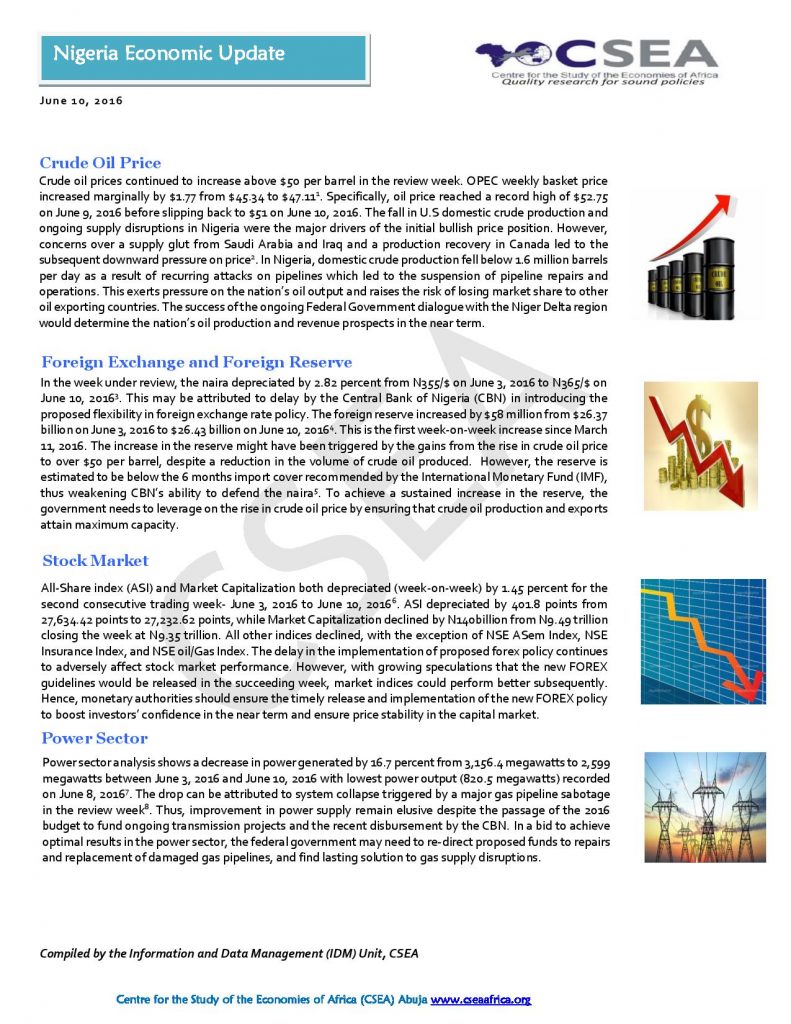Macroeconomic Report & Economic Updates

July 10, 2017
Nigeria Economic Update (Issue 26)
Power sector statistics indicates a huge decline in power generated in the week under review (June 23, 2017 to June 30, 2017). Power generated, attained a peak of 4,305 MW on June 23, 2017 but fell significantly by 33.1 percent to approximately average of 3,000 MW as at June 30, 2017. The huge decline is attributable to continued poor payment and inability of most GENCOs to pay for gas supply and a system collapse. Consequently, power sector lost huge prospective funds; and daily power supply reduced to 4.5 hours per day7. Going forward, improvement in energy supply is critical to domestic production, job creation, and diversification agenda of the government.
Related
Cost Effectiveness And Benefit Cost Analysis Of Some Education Assistance Programmes In FCT, Nigeria
This study
conducts a Cost-Effectiveness Analysis of Nigerias education sector with
emphasis on the relative effectiveness and efficiency of Home Grown School
Feeding & Health program and the Education Assistance program implemented
in public primary school in the FCT, Nigeria.
Nigeria Economic Update (Issue 11)
Recently released report by the National Bureau of Statistics (NBS) indicates price increase of selected food items for the month of February 2017, relative to January 2017. Specifically, prices of the selected 24 food items ranged from N47.42 N1, 812 in January to N42.90 N1, 955.10 in February 2017. Average price of all selected items increased month-on-month by 2.7 percent to N540.05. Non-seasonal agriculture factors such as rising cost of crop production, imported products, and transportation continue to drive domestic food prices higher as domestic food supply contracts. This is also reflective of the high food inflation rate in February (18.53 percent) relative to 17.82 percent recorded in January 2017. Strengthening Nigerias crude oil production, supporting local agricultural production, and improving forex policies to straighten the naira remain critical in improving food supply and reducing inflation.
